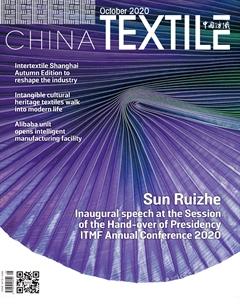“Nothing New, Everything New”:Heimtextil presents the 2021/2022 trends
by Zhong Mengxia
With the overarching theme “Nothing New, Everything New”, Heimtextil launches the motto of the trend season 21/22 and provides an outlook on the design topics for the international trade fair for home and contract textiles, taking place from 12 to 15 January 2021 in Frankfurt am Main.
Together with the Heimtextil Trend Council, the management established a trend forecast for the coming season and presented it live via an online conference on 1 September 2020 from Frankfurt am Main. Trend Council members Anja Bisgaard Gaede from SPOTT trends & business, Anne Marie Commandeur from stiljinstituut Amsterdam and Kate Franklin and Caroline Till from London studio FranklinTill shared their insights into the future of the industry and created a vision for the trend theme “Nothing New, Everything New”. The subsequent design topics are already brought to life in the trend book, which is available now. In terms of trends, this seasons highlight is the comprehensive presentation offering during Heimtextil in Hall 3.0. For the first time in Heimtextils history, SPOTT trends& business from Denmark directs all trend activities.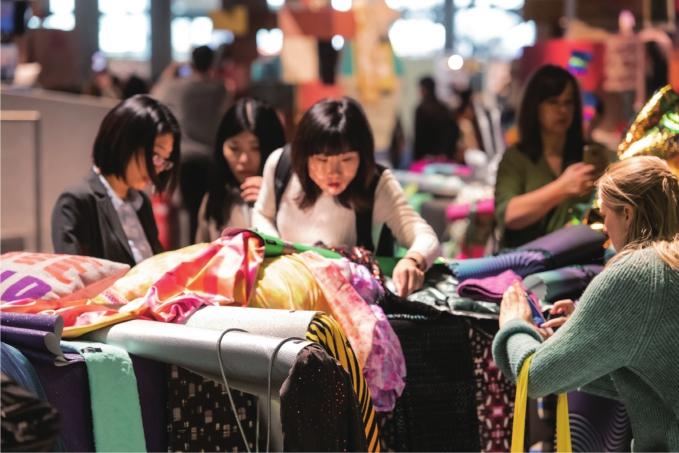
“Nothing New, Everything New”
For many years, the lifestyle industry has asked “what is new this season?”. Newness and cultural erosion are core drivers of lifestyle products, and the foundation of this began in the 20th century when shopping shifted from necessity-driven to pleasure-driven, and consumer products were no longer made to last a lifetime. Now is the time for a new perception of new itself, as both consumers and the industry are beginning to change existing systems and ways of working in different ways. Welcome to“Nothing New, Everything New”.
Crisis as a driver of innovation
The first two decades of this millennium brought several challenges for industry and trade – above all, the current coronavirus pandemic. But crises are also drivers of innovations. In the textile industry, digitalization and sustainability are currently omnipresent innovation topics. The coronavirus pandemic ensures that both topics are becoming even more important in the home textile industry. Heimtextil Trends 21/22 provide an overview of the status quo of those developments. In addition, visitors of the Trend Space can look forward to a presentation of the new colors, materials and designs. Four areas showcase the collective trends: "Repurpose", "Rewild", "Reinforce" and "Revive".
New materials on a sustainable basis
After its premiere in January 2020, the Future Material Library returns to Heimtextil in 2021, with FranklinTill presenting a new curated collection of exciting material innovations from around the world. The Future Materials Library celebrates experimental approaches, new materials and revolutionary thinkers who are creating a blueprint for a new model of production.
Sustainably designed Trend Space
Designed by Danish space design studio MODUS A/S together with SPOTT trends & business, the 2021 Trend Space embodies the overarching theme with its commitment to the Heimtextil Material Manifesto in repurpose materials during build. The task is to produce as little waste as possible, to use recyclable materials and thus keep the ecological footprint as low as possible.
Health and safety precautions
Overall, the Trend Space design adheres to vigilant health and safety considerations. Attendees will have full ability to maintain a safe distance from others, with the option of attending trend tours and lectures that meets the official COVID-19 regulations from authorities.
Heimtextil Trends 2021/2022 Overview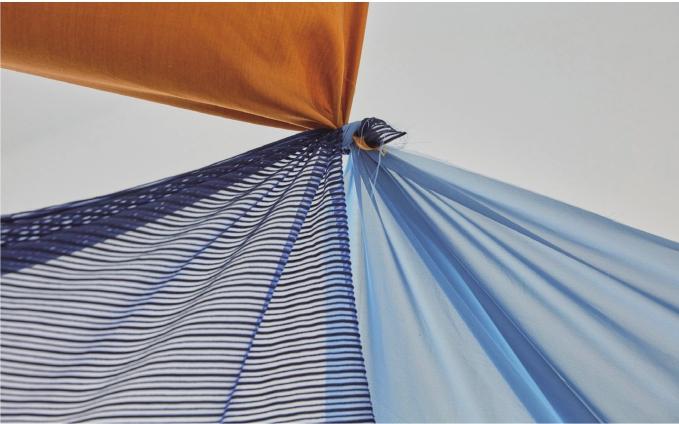
Repurpose
Repurpose is not a passing trend. Rather, it is a way of changing the product development narrative within the textiles industry, shifting from creating original textiles to curating existing textiles to form new visual expressions. Unlike the traditional design process which starts with an idea, Repurpose starts with considering what can be made from existing fabrics. From creation to curation, it gives existing textiles a new purpose and cherishes whats already made.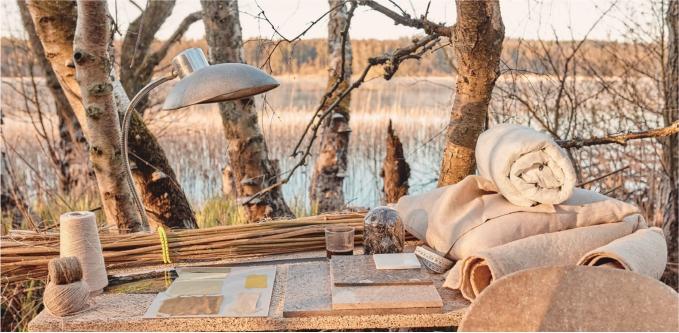
Rewild
Rewilding is the act of returning nature back to its original wild state, yet the trend Rewild goes beyond returning to nature. It is not about making nature authentic, but rather understanding natures genuine wisdom. In the urban and postmodern world, generations have largely lost connection to the surrounding ecology. This has significant influence on how individuals use and understand the ecosystem they live in. From authentic to genuine, Rewild means rediscovering natures resources and applying these in a modern context, delivering on sustainable or even regenerative solutions. The visual and textile expressions of the Rewild trend focus on directions like natures lab, Indigenous, wild and basic living.
Reinforce
Resilient expression and brutalist architecture are key elements in the Reinforce trend. To reinforce is to make something stronger. Longevity is a key influence on colors, materials and design. Reinforce has a simple and bold Scandinavian mood with a Page 3 resilient, honest and minimalistic look. From short-lived to longevity, Reinforce is about visual and compositional longevity within textiles and materials. It draws inspiration from how Scandinavian design merges design durability with pared back functionality. This approach, proven over time, adds heavy and enduring materials to create visual resilience.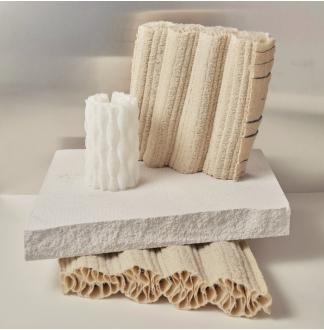
Revive
Reflecting youthful activism within our present perspective, attitude and behaviour toward our world of “stuff”, Revive is an exploration of creativity. With a focus on achieving greater emotional satisfaction through the process of creating rather than on the result, no rules apply to the mending, processing, learning and experimenting in Revive. From result to process, Revive is to feel, sense and reconnect with human skills. It revives and honors the intangible state of flow that occurs while creating as opposed to focusing on the final object. Once a household practice, the act of repairing is now seen as creative method. The Revive trend subsequently focuses on process, modern mending and experimentation.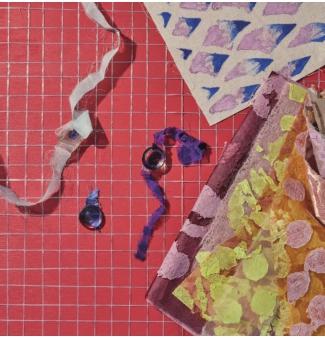
- China Textile的其它文章
- Dear readers
- Hybrid ITMF Annual Conference 2020
- Sun Ruizhe:Inaugural speech at the Session of the Hand-over of Presidency ITMF Annual Conference 2020
- Intertextile Shanghai Autumn Edition to reshape the industry
- Intertextile Shanghai Apparel Fabrics provides the industry energy
- CHIC 2020 comes back strong!

